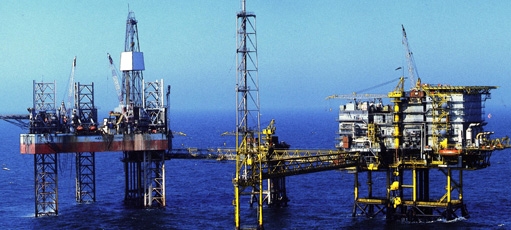As much as $19 trillion investment will be needed in global oil and gas production to power global economy for the next 25 to 27 years, when world population reaches 9 billion by 2040, according to International Energy Agency. With nearly two billion people out of the world’s 7 billion population already deprived of power, the addition of two billion people in the next 27 years means that the world will have to power four billion people.
Nearly two billion people out of the world’s 7 billion population already deprived of power
“Energy was a luxury even in our recent history when Emiratis used to cool homes with natural air captured and passed through the wind towers prior to the discovery of oil our country in 1958,” Mohammad Bin Daen Al Hamili, UAE Minister of Energy, told delegates at the World Energy Forum.
“However, the UAE believes in greater accessibility of energy and ‘energy for all’ is our key message from this gathering. We believe in energy optimization — choosing the right energy mix to ensure a sustained supply to power our economies and for our future generations.”
He reiterated the UAE’s position in supplying sufficient crude to support the global growth. “We need to ensure that oil resources are used for social development, at the same time ensure that the environmental issues are looked into,” he said.
Despite the abundance of hydrocarbon resources, we in the UAE, are also pursuing renewable energy through Masdar Initiative
“Despite the abundance of hydrocarbon resources, we in the UAE, are also pursuing renewable energy through Masdar Initiative and Mohammad Bin Rashid Solar Park.”
He also stressed cross-border cooperation in energy and power to ensure maximum utilization of resources. “Interconnectivity is at the heart of the energy debate. We have pursued Dolphin Gas project through which Qatari gas is piped to the UAE and Oman. Then there is the GCC power grid that will help best utilize our power supply across the region,” he said.
“These are excellent examples of how regional cooperation could help maximize gains from existing resources.”
Fossil fuel will continue to dominate the global energy supplies
S. Jaipal Reddy, Indian Minister for Oil and Gas, said, fossil fuel will continue to dominate the global energy supplies. He urged energy stakeholders to free the market up from price manipulation and speculation.
“There is a huge inequality in global energy prices. Price difference between WTI and Brent is becoming an issue,” he said. “The increasing role of speculation in fixing the price of oil price is becoming a huge burden for developing nations who can’t continue to increase subsidies beyond a certain limit.
“An appeal should go out from the World Energy Forum to contain this. Providing energy at a reasonable price in a sustainable manner will be difficult to achieve with price manipulation in place,” Reddy said.
However, despite calls for renewable energy, most oil ministers of the developing world say that fossil fuel will remain dominant in the global energy mix in the future.
By 2040, global demand for crude will reach somewhere between 110-115 million barrels per day
Dr Yucef Yousfi, Algerian Minister of Energy and Mining, said, “About 80 per cent of the primary energy will be from oil and gas. By 2040, global demand for crude will reach somewhere between 110-115 million barrels per day.”
Global crude production averages around 83 million barrels per day currently with Opec members’ supply around 32 million barrels per day. “However, lack of financing is a major hurdle in increasing supplies,” he said.
Qatari Minister for Energy and Industry Dr Mohammad Bin Saleh Al Sada, said, he foresees fossil fuels to continue to be the centerpiece of the energy equation for several decades to come. The role of fossil fuels in meeting the current and future development needs of the world is well established.”
The main driver for the energy demand is the economic activity; followed by other factors such as government policies, new efficient technologies, population growth, etc, he said.
By 2035, nearly 90 per cent of this growth will be in non-OECD countries, with a net increase in oil demand coming from the transport sector
“By 2035, nearly 90 per cent of this growth will be in non-OECD countries, with a net increase in oil demand coming from the transport sector,” he said. “As per the recent projections, demand for natural gas will rise from 2010 through 2040.”
However, despite these, leaders called for having a better energy mix that is sustainable and will reduce impact on the environment.
“If we continue to rely on fossil fuel, then it will threaten our environment,” said Indonesian Energy Minister Jero Wacik.
Mohammad Hamad Al Rumhi, Minister of Oil and Gas of Oman, said, “Energy should be a basic human right. Fossil fuel is a solution if managed properly. We should make them cleaner rather than create obstacles in the name of carbon tax.”
Gulf News
26 October























































